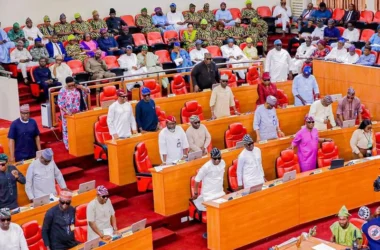Nigeria’s Value Added Tax (VAT) collection surged to N6.72 trillion in 2024, the Federal Inland Revenue Service (FIRS) reports. This marks an 84.62% increase compared to the N3.64 trillion collected in 2023. The figures were shared during an FIRS management retreat by Amina Ado, Coordinating Director of the Large Taxpayers Group.
The report notes significant growth in both import and non-import VAT collections. Non-import VAT, which was N2.93 trillion in 2023, rose by 75.09% to N5.13 trillion in 2024. Meanwhile, import VAT more than doubled, jumping from N715 billion to N1.59 trillion, reflecting a growth of 122.38%.
In addition to VAT, other tax categories also saw notable increases. Company Income Tax (CIT) rose sharply by 102.5%, climbing from N3.35 trillion in 2023 to N6.78 trillion in 2024. Similarly, Petroleum Profit Tax, Hydrocarbon Tax, and the Upstream CIT segment recorded a 35.2% increase, rising from N4.26 trillion to N5.76 trillion.
Education Tax experienced the highest year-on-year percentage growth, surging by 127.8%. The revenue from this tax increased from N719 billion in 2023 to N1.64 trillion in 2024.
FIRS Executive Chairman, Zacch Adedeji, has set an ambitious revenue target of N25.2 trillion for 2025.
Meanwhile, discussions around VAT distribution continue to gain attention. Chairman of the Presidential Fiscal Policy and Tax Reforms Committee, Taiwo Oyedele, recently pointed out that MTN Nigeria is the largest VAT contributor, paying over N200 billion monthly. However, he noted that the current VAT allocation system credits all of MTN’s VAT payments to Lagos State, where its headquarters is located, despite the company generating revenue from services used across the country.
“MTN is the largest contributor to VAT in Nigeria. So they, in fact, pay VAT of over N200 billion every month; the gap between them and number two is huge,” Oyedele said.
He further explained that under the proposed tax reform, VAT revenue would be distributed more equitably based on where the transactions occur rather than where company headquarters are located.
“This adjustment ensures that states where the VAT is generated get their fair share,” he added.
If implemented, this reform would reduce Lagos State’s share of MTN’s VAT contributions from 100% to about 20%, ensuring that other states also benefit from the revenue generated within their regions.










